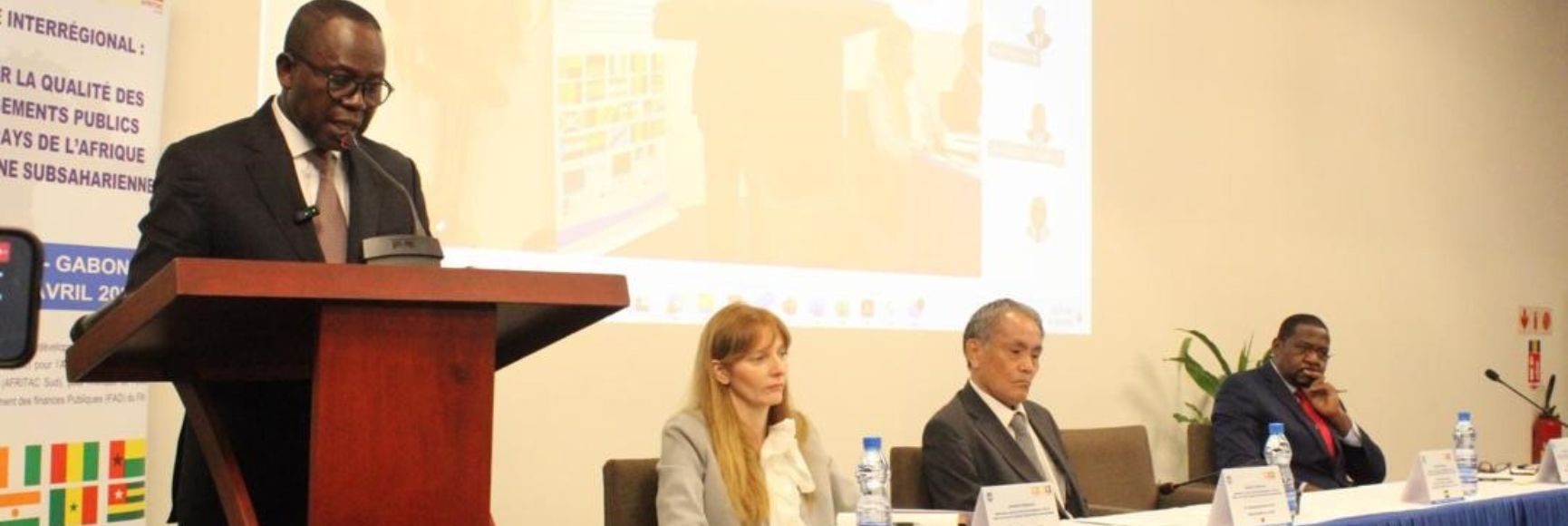
Posted by Gwénaëlle Suc, Onintsoa Raoilisoa, Pierre Roumégas, Philippe Lonné, Elvis Danhoumè, Firmin Aignon, and Serge Loupeda[1].
Public investment was one of the main drivers of growth in the last two years in Benin. The Beninese authorities requested in 2017 a Public Investment Management Assessment (PIMA)[2] to support the scaling-up of public investment. This assessment highlighted a strong institutional framework but with a low level of effectiveness. The main areas of weaknesses were in project selection processes and ex-ante appraisals, in the financial and physical follow-up of projects’ implementation, in post execution evaluations, and in the management of financial liabilities.
The Beninese Government endorsed an action plan drawing on PIMA recommendations. More than two years later, significant progress was made to design a regulatory framework covering all stages of public investment management, improve public investment budgeting, and specify PPPs regulations.
A mission of the Fiscal Affairs Department organized a seminar in Cotonou to provide hands-on and tailored advice in three priority areas: multiyear budgeting of public investment, selection and evaluation of projects, and implementation and maintenance of infrastructures. The seminar was attended by 40+ participants of ministries and institutions involved in public investment management. Collaborative workshops were held to compare practices in Benin with international standards and other countries’ experiences.
The workshop on multiyear budgeting focused on how the new system of commitment and payment appropriations will help manage multiyear projects and improve assessment of budgetary risks. Participants emphasized the need of a strong coordination between line ministries and the Economy and Finance.
The workshop on project selection and appraisal discussed systems and procedures for project appraisal and selection and formulated a set of actions to improve the preparation of projects, including the review and publication of selection criteria. Participants also highlighted the importance of capacity building, as well as the publication and dissemination of the various regulations and guidelines on public investment management.
The handbook on assets management used by Niger municipalities was presented in the workshop on implementation and maintenance of infrastructures. Other experiences included maintenance handbooks and guidelines used in Senegal, South Africa, France and in the United States.
The action plan drawing on PIMA recommendations has been updated and priority actions to strengthen the impact of ongoing reforms have been identified through those discussions. They should focus now on increasing the transparency of public investment management and on operationalizing the new regulatory framework.
[1] Gwénaëlle Suc works as an Economist in the Fiscal Affairs Department of the IMF, Onintsoa Raoilisoa, Pierre Roumégas, Philippe Lonné are FAD experts, Elvis Danhoumè is the Technical Secretary of the unit monitoring financial and economic programs (CSPEF) in Benin, Firmin Aignon was deputy Technical Secretary of the CSPEF, and Serge Loupéda assistant of the Technical Secretary of the CSPEF.
[2] The PIMA report is available on the following link: https://www.imf.org/en/Publications/CR/Issues/2020/01/27/Benin-Technical-Assistance-Report-Public-Investment-Management-Assessment-48986
Note: The posts on the IMF PFM Blog should not be reported as representing the views of the IMF. The views expressed are those of the authors and do not necessarily represent those of the IMF or IMF policy.





